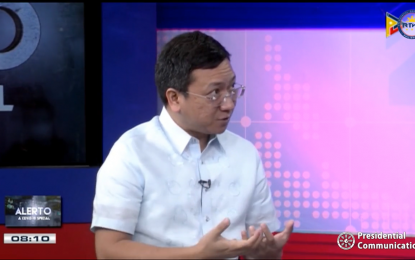
DILG Undersecretary Jonathan Malaya. (File photo)
MANILA – The Department of the Interior and Local Government (DILG) on Tuesday said it will closely monitor the areas which reverted to the enhanced community quarantine (ECQ) and modified enhanced community quarantine (MECQ) amid the coronavirus disease 2019 (Covid-19) pandemic.
"One of the reasons why these areas reverted to ECQ is due to two factors -- the case doubling time and the utilization of the critical care infrastructure. On the basis of these data which we have collated, the IATF (Inter-Agency Task Force for the Management of Emerging Infectious Diseases) came up with this recommendation and at the same time, that is also what the local government units requested to the President, which he approved," said DILG Undersecretary Jonathan Malaya in Filipino during the Laging Handa briefing.
He noted that the government decided to place Cebu City back to ECQ due to the city’s consistent case doubling time of less than seven days and a significant rise in critical care utilization against critical care capacity.
Talisay City, a component city under the province of Cebu, is placed under MECQ until June 30 for the same reasons.
With Cebu City under ECQ, Malaya said the government is prepared to provide assistance to local residents who might be displaced from work.
Under ECQ rules, public transportation is suspended, non-essential establishments and businesses are closed and non-essential travels are prohibited.
He also assured that contact tracing teams are prepared to enforce interval measures as the need arises in Cebu City due to the spike of Covid-19 cases in the area.
Malaya, meanwhile, said local government units now have the discretion to impose lockdown in a particular street, sitio (sub-village), or barangay.
"We decentralized already the authority to local government unit para magdeklara po sila ng kanilang localized lockdown (for them to declare localized lockdown)," Malaya said.
He, however, said the implementation of localized lockdowns should be in concurrence with the Regional Inter-Agency Task Force (RIATF).
Metro Manila, meanwhile, remains under GCQ until the end of the month.
Some of the LGUs such as the cities of Caloocan, Manila, Parañaque, and Quezon City have imposed their localized lockdowns, Malaya said.
The government also placed under GCQ until end of June the provinces of Cagayan, Isabela, Nueva Vizcaya, Quirino, and Santiago City in Region II; Aurora, Bataan, Bulacan, Tarlac, Olongapo City in Region III; Cavite, Laguna, Batangas, Rizal, Quezon in Region IV-A, and Occidental Mindoro for Luzon.
For the Visayas, the provinces of Bohol, Cebu, Negros Oriental, Siquijor, Mandaue City, Lapu-Lapu City in Region VII are placed under GCQ.
Davao City and Zamboanga City in Mindanao are also under GCQ.
The rest of the country remains under modified general community quarantine (MGCQ) until June 30.
Duterte, meanwhile, reminded the public to observe minimum health standards despite relaxed quarantine restrictions such as physical distancing, wearing of face masks, and hand washing.
"We are gradually easing restrictions to make way for our economic viability as individuals and as a nation. But it does not mean that we will forget our minimum health standards," he said.
Earlier, Duterte warned that the return to a stricter community quarantine is possible in areas with rising number of Covid-19 cases. (PNA)
